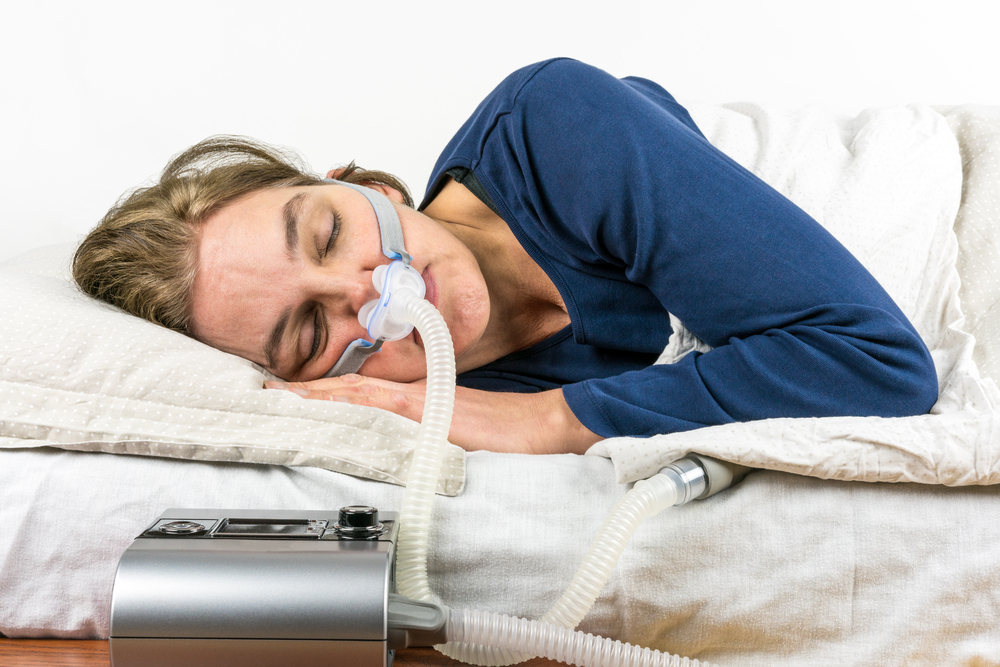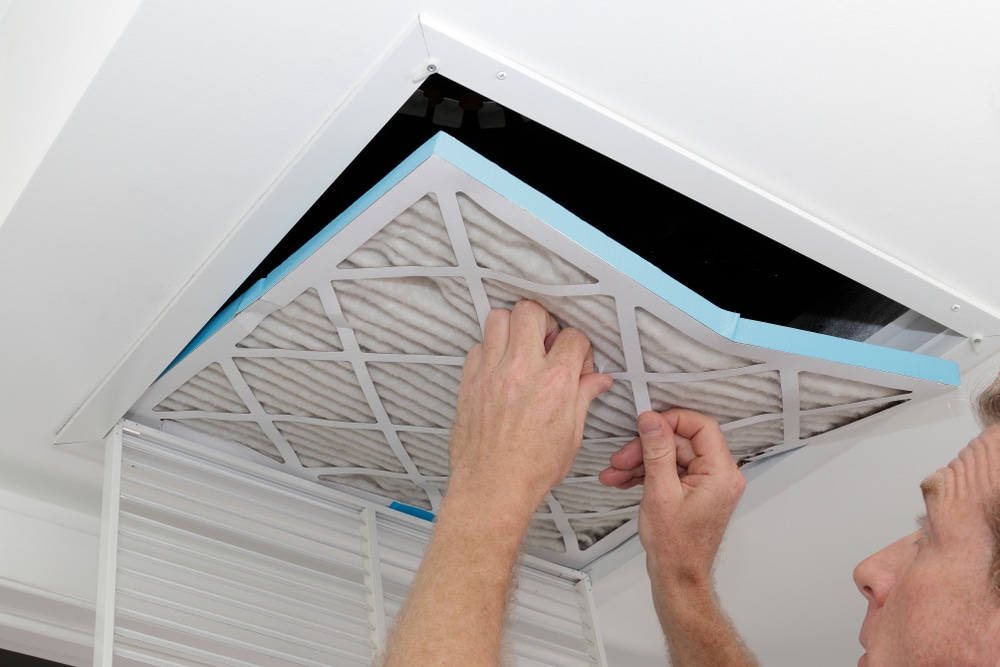Welcome to our blog post where we explore the relationship between sleep apnea and mental health. Sleep apnea is a condition that affects millions of people worldwide, causing interruptions in breathing during sleep and leading to various health problems.
One of the most commonly associated mental health conditions with sleep apnea is anxiety and depression. Research has shown that individuals with sleep apnea are at a higher risk of developing anxiety and depression, and that these conditions can worsen the symptoms of sleep apnea.
However, the mechanisms behind this connection are complex and multifactorial. In this blog post, we will delve into the relationship between sleep apnea, anxiety, and depression, and discuss the underlying mechanisms that contribute to their co-occurrence.
We will also explore how treating sleep apnea can improve mental health, and the importance of seeking medical help for both sleep apnea and mental health issues. Join us on this informative journey to learn more about the impact of sleep apnea on mental health and where we try ti answer the question “can sleep apnea cause anxiety and depression?”.
Link Between Sleep Apnea and Anxiety
Recent studies have shown a strong link between sleep apnea and anxiety. One study found that individuals with sleep apnea were five times more likely to develop anxiety than those without the condition.
Another study found that anxiety symptoms were more common among individuals with sleep apnea, particularly among those with more severe cases.
So, what mechanisms contribute to the link between sleep apnea and anxiety? One theory suggests that sleep apnea causes disruptions in the body’s stress response system, leading to increased levels of stress hormones such as cortisol. This hormonal imbalance may trigger anxiety symptoms in some individuals. Additionally, sleep deprivation caused by sleep apnea can lead to a decrease in the neurotransmitter GABA, which is responsible for calming the nervous system. This decrease in GABA levels may also contribute to the development of anxiety.
The relationship between anxiety and sleep related breathing disorders is well-established. Individuals with anxiety often have difficulty falling and staying asleep, which can exacerbate anxiety symptoms. Sleep apnea can further disrupt sleep quality, leading to a vicious cycle of depression and anxiety. Therefore, it is essential to address both anxiety and sleep apnea to improve overall sleep quality and reduce anxiety symptoms.
Treating Sleep Apnea and Its Effect on Anxiety
Fortunately, treating obstructive sleep apnea syndrome can have a positive impact on anxiety symptoms. Several studies have demonstrated the effectiveness of treating obstructive sleep apnea in reducing anxiety levels. In one study, individuals with obstructive sleep apnea syndrome who received continuous positive airways pressure (CPAP) therapy reported significant improvements in anxiety symptoms compared to those who did not receive treatment.
How exactly does treating obstructive sleep apnea help reduce anxiety? One possible explanation is that by improving sleep quality and reducing sleep disturbance, the body’s stress response system is better regulated. With a more balanced stress response, anxiety symptoms may decrease.
Additionally, treating sleep apnea can lead to improved oxygenation and better overall physical health, which can also contribute to reduced anxiety.
In addition to reducing anxiety, treating obstructive sleep apnea has several other potential benefits. These include improved cognitive function, reduced risk of cardiovascular disease, and better overall quality of life.
By treating sleep apnea, individuals with excessive daytime sleepiness can experience more restful sleep, wake up feeling refreshed, and have more energy throughout the day.
Sleep Apnea and Depression
In addition to anxiety, obstructive sleep apnea syndrome has also been strongly linked to depression. Several studies have found that individuals with sleep apnea are more likely to experience symptoms of depression compared to those without the condition.
One study even found that individuals with severe sleep apnea were five times more likely to develop depression than those without the condition.
The mechanisms behind the link between sleep apnea and depression are complex and not yet fully understood. One theory suggests that sleep apnea may lead to a decrease in the neurotransmitter serotonin, which is important for regulating mood and can make depression worse.
Sleep apnea may also contribute to inflammation in the body, which has been linked to depression.
Depression is also closely linked to sleep fragmentation. Individuals with depression often experience disturbances in their sleep, including difficulty falling asleep and staying asleep.
Sleep apnea can further exacerbate sleep disturbances, leading to a vicious cycle of poor sleep and worsening depression symptoms.
Additionally, sleep deprivation caused by sleep apnea can lead to fatigue and decreased energy levels, which are common symptoms of depression.
Sleep Apnea’s Effect on Anxiety and Depression
Sleep apnea and other breathing related sleep disorders can have a significant impact on anxiety and depression symptoms. The disruptions in breathing during sleep caused by sleep disordered breathing can lead to frequent awakenings and poor sleep quality, which can worsen both anxiety and depression symptoms.
In fact, individuals with sleep apnea are more likely to experience symptoms of anxiety and depression compared to those without the condition.
Sleep disruption caused by sleep apnea can also contribute to changes in brain function that worsen anxiety and depression symptoms. For example, poor sleep fragmentation can lead to an increase in activity in the amygdala, which is responsible for processing emotions like fear and anxiety. This increased amygdala activity may lead to heightened anxiety and fear responses in individuals with sleep apnea.
Similarly, poor sleep can also contribute to decreased activity in the prefrontal cortex, which is responsible for regulating emotions and decision-making. This decrease in prefrontal cortex activity can lead to difficulty regulating emotions and behaviors, which may worsen depression symptoms.

Sleep Apnea as a Secondary Condition
While sleep apnea can contribute to the development or worsening of anxiety and depression, it is also possible for sleep apnea to be a secondary condition to mental health issues. For example, individuals with depression may have a higher likelihood of developing sleep apnea. Depression can lead to changes in breathing patterns and weight gain, both of which are risk factors for sleep apnea.
Similarly, anxiety and stress can also contribute to the development of sleep apnea. Anxiety and stress can lead to hyperarousal, which can disrupt sleep and contribute to the development of sleep apnea. Additionally, the muscle tension and increased heart rate associated with anxiety can contribute to snoring and breathing problems during sleep.
Sleep apnea can also be a secondary condition to other health issues, such as obesity, diabetes, and heart disease. These conditions can contribute to the development of sleep apnea by increasing the likelihood of weight gain and changes in breathing patterns.
Sleep Apnea and Mental Health
Sleep apnea can significantly affect mental health. As previously discussed, sleep apnea has been linked to anxiety and depression. Sleep apnea is and independant risk factor that can also contribute to irritability, mood swings, and difficulty with emotional regulation.
Additionally, sleep apnea can cause daytime sleepiness and fatigue, which can negatively impact overall mood and quality of life.
In addition to anxiety and depression, sleep apnea has also been linked to other mood disorders, such as bipolar disorder. Individuals with bipolar disorder who have sleep apnea may experience more frequent and severe mood episodes compared to those without sleep apnea.
The relationship between sleep apnea and mental health is complex and multifactorial, and both conditions can contribute to the development or worsening of the other. It is essential to address both sleep apnea and mental health issues to achieve optimal well-being.
Other Factors Contributing to Sleep Apnea
While sleep apnea is primarily caused by anatomical or physiological factors, other factors can contribute to the development or worsening of the condition. Stress and depression are two such factors.
Chronic stress can lead to changes in breathing patterns and increased muscle tension, both of which can contribute to the development of sleep apnea. Additionally, depression can lead to changes in sleep patterns, including disruptions in breathing during sleep.
Similarly, other emotional and psychological factors, such as anxiety, post-traumatic stress disorder (PTSD), and panic disorder, can also contribute to the development of sleep apnea. These conditions can lead to changes in breathing patterns and muscle tension.
Other disorders can also contribute to the development of sleep apnea. For example, obesity is a significant risk factor for sleep apnea, as excess weight can lead to changes in breathing patterns and increased pressure on the airways. Additionally, certain medical conditions, such as hypothyroidism, acromegaly, and Parkinson’s disease, can also contribute to the development of sleep apnea.
Treating Sleep Apnea and Its Effect on Mental Health
Sleep apnea treatment can have a significant impact on mental health, particularly depression. Studies have found that individuals who receive treatment for sleep apnea, such as CPAP therapy, report improvements in depression symptoms. By improving sleep by reducing sleep disruptions, treatment can lead to a better regulated stress response system, improved oxygenation, and better overall physical health. All of these factors can contribute to reduced symptoms of depression.
In addition to depression, treating sleep apnea has several other potential benefits for mental health. Health care providers who treat sleep often find that individuals with sleep apnea may experience fewer symptoms of anxiety, irritability, and mood swings.
Additionally, better sleep can lead to improved cognitive function, increased energy levels, and better overall quality of life.
Poor sleep quality can lead to a host of physical and mental health problems, including an increased risk of cardiovascular disease, obesity, and mood disorders. By addressing sleep apnea and improving sleep, individuals can potentially reduce their risk of developing these health issues and improve their overall well-being.

Diagnosis and Treatment of Sleep Apnea
Diagnosing sleep apnea typically involves a sleep study, which can be conducted at a sleep center or through a home-based study. During a sleep study, several parameters are measured, including breathing patterns, oxygen levels, heart rate, and brain waves. Based on the results of the sleep study, a healthcare provider can diagnose sleep apnea and determine the severity of the condition.
Once diagnosed, there are several treatment options available for sleep apnea. The most common treatment is continuous positive airway pressure (CPAP) therapy, which involves wearing a mask over the nose and/or mouth that delivers air pressure to keep the airway open during sleep. Other treatment options include lifestyle modifications, such as weight loss and exercise, oral appliances, and in some cases, surgery.
It is important to seek medical help for sleep apnea, as the condition can have significant impacts on overall health and well-being. In addition to contributing to mental health issues, sleep apnea can also increase the risk of cardiovascular disease, stroke, and diabetes.
Seeking treatment for sleep apnea can improve sleep quality, reduce daytime sleepiness and fatigue, and improve overall physical and mental health.
Conclusion
sleep apnea is a complex condition that can have significant impacts on mental health, physical health, and overall well-being.
The link between sleep apnea and mental health is particularly strong, with the condition contributing to the development or worsening of anxiety, depression, and other mood disorders. Additionally, poor sleep caused by sleep apnea can lead to irritability, mood swings, and difficulty with emotional regulation.
While sleep apnea is primarily caused by anatomical or physiological factors, other factors such as stress, depression, and obesity can also contribute to the development or worsening of the condition.
Seeking medical help for sleep apnea is crucial for optimal health and well-being, as the condition can increase the risk of other health issues such as cardiovascular disease, stroke, and diabetes.
Treating sleep apnea can have significant benefits for mental health, particularly depression. By improving sleep quality and reducing sleep disruptions, individuals can experience fewer symptoms of anxiety, irritability, and mood swings.





